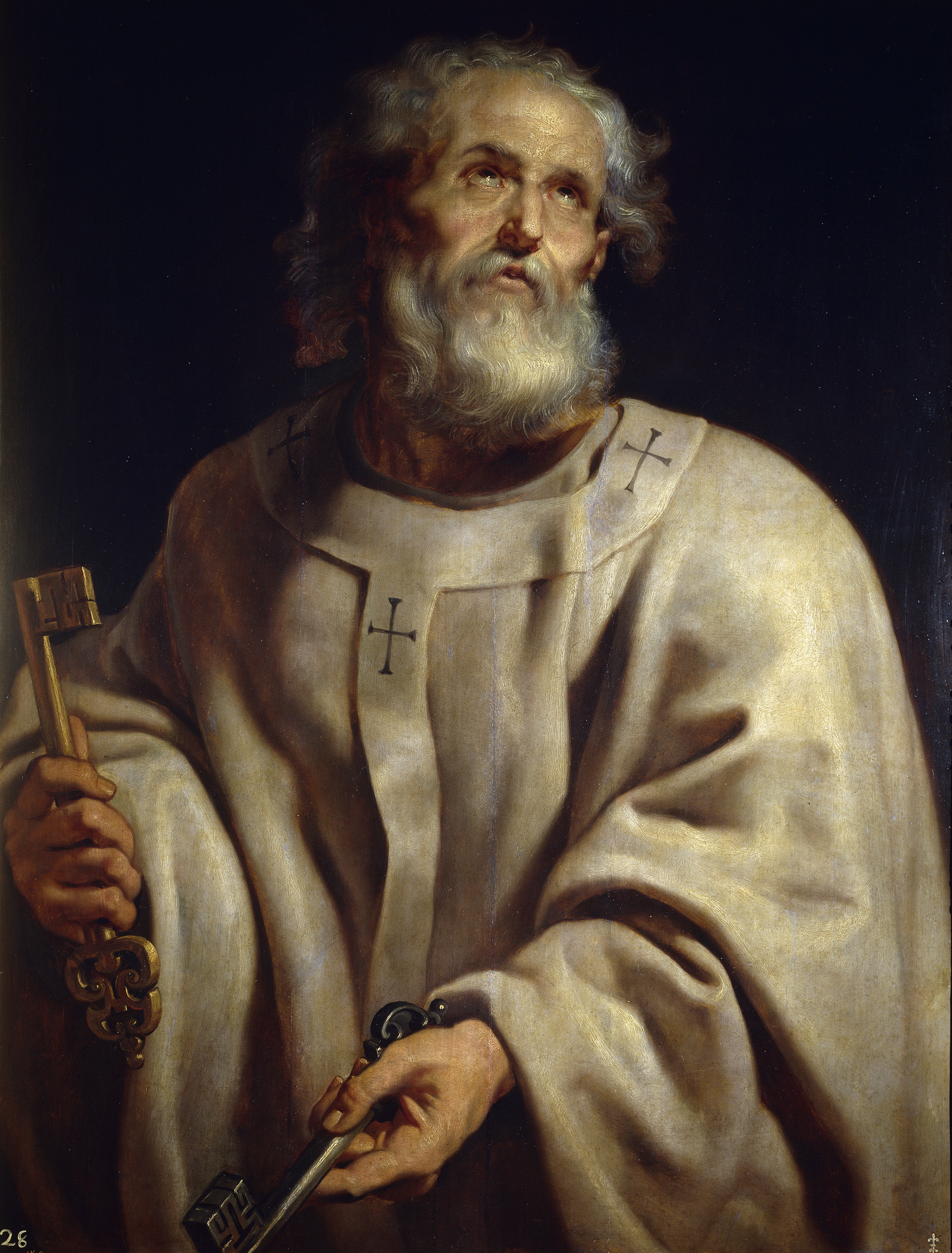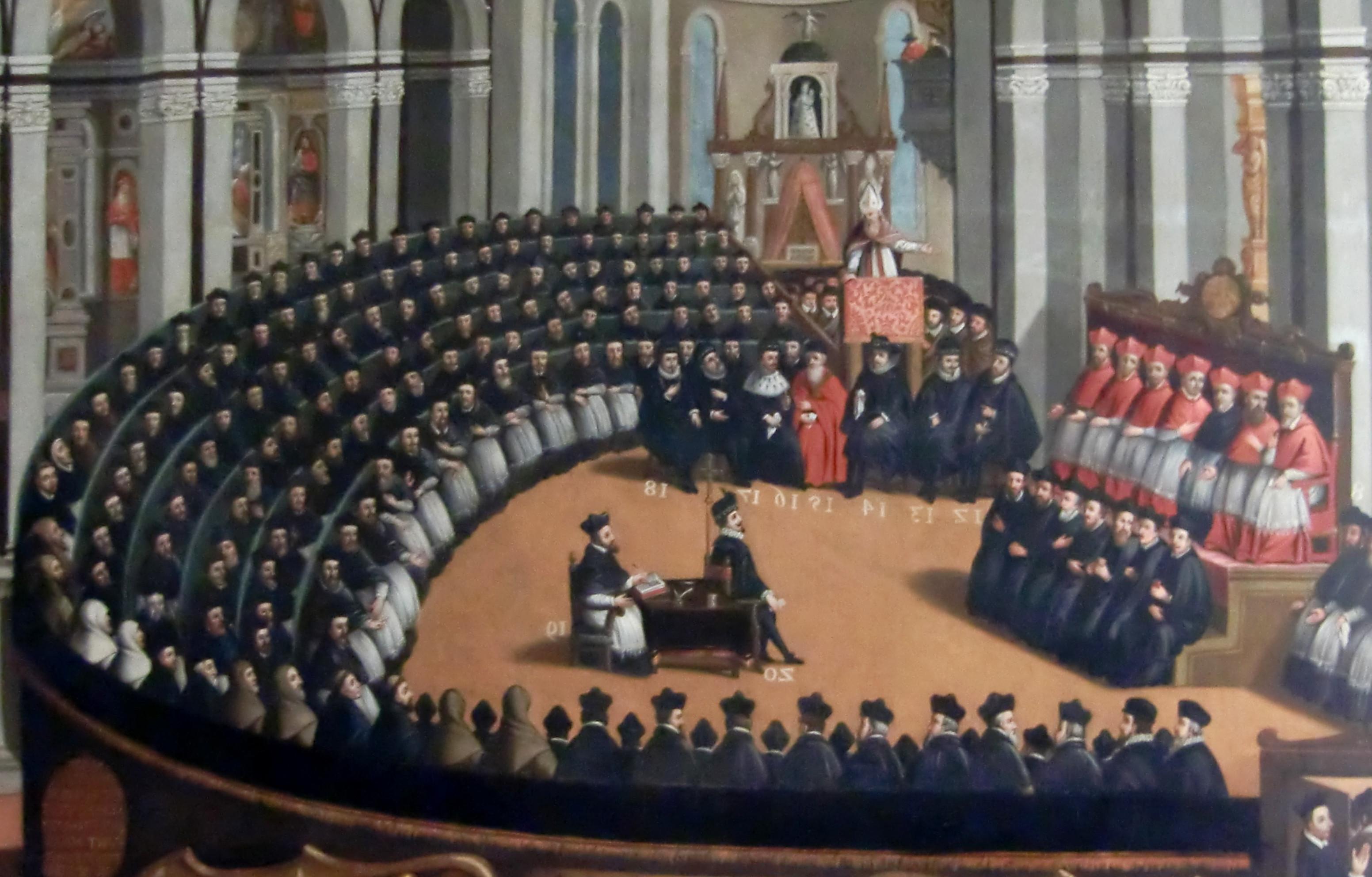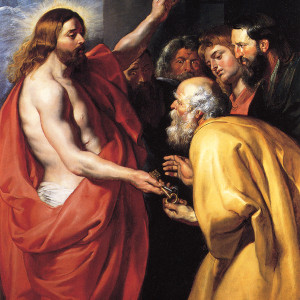A friend asked me about an argument against Catholicism raised by Fr. Viktor Potapov, an Orthodox priest based here in D.C., in Chapter Ten of his Orthodoxy and Heterodoxy. The argument essentially says that the early Church believed in conciliar infallibility, but that the West replaced this idea with papal infallibility. Fr. Potapov first explains that, “since the opinion of the whole Church is made manifest at Ecumenical Councils, the Ecumenical Councils are the infallible custodians and interpreters of Divine Revelation.” Catholics agree with this, but Fr. Potapov claims that papal infallibility undermines this idea:
This view of the infallibility of the universal Church, which comes from Christ and His apostles, was common in Christianity during the course of the first centuries and remained unchanged in the Orthodox Church. But in the West, side by side with other deviations, this view of the infallibility of the Church also under-went distortion. The Roman bishop was always considered one of the members of the council, and he submitted to its decisions. But, in the course of time, the pope of Rome began to attribute the privilege of ecclesiastical infallibility to himself alone and, after long efforts, finally secured the recognition of his absurd pretension at the Vatican Council of 1870.
This distorts Catholic teaching badly: we don’t believe that only the pope is infallible. The reason that Orthodox apologists will be able to find innumerable instances of Ecumenical Councils acting infallibly is because Ecumenical Council can act infallible. Catholicism affirms this, and always has. So this argument doesn’t prove the case against the papacy at all.
 |
| Peter Paul Rubens, Christ Surrendering the Keys to St. Peter (1614) |
In other words, it’s a false choice between papal infallibility and conciliar infallibility. We believe in both. And Scripture seems to support both, as well. Let me give you a couple examples from the Bible, where we see parallel Petrine and conciliar infallibility / authority:
- In Acts 15, the Apostles settle the dispute over the Judaizers by organizing the Council of Jerusalem. Did the Council have the capacity and authority to settle this dispute? Yes (see Acts 15:28).
- In Acts 10:1-11-18, St. Peter (on his own) settled a nearly-identical dispute involving the Judaizers. Did St. Peter individually have the capacity and authority to settle this dispute? Yes (see Acts 10:44).
So it’s not “God works through St. Peter” or “God works through the Council.” He works through both. Next:
- In Matthew 18:15-18, Jesus gives the Church collectively the power to bind and loosen.
- In Matthew 16:17-19, Jesus gives St. Peter individually the power to bind and loosen.
Even more than the first, this second example reflects the two distinct (but interconnected) ways that the Holy Spirit works: through the Petrine Office, and through the Ecumenical Council. That is, why is Matthew 16:17-19 in Scripture, if it’s not just redundant of Matthew 18:15-18?
But let me go ahead and turn this objection on its head. Three things to consider:
- The papacy is necessary for the existence of a valid Ecumenical Council. Without the papacy, there is no objective reason to accept the Council of Chalcedon (451 A.D.), while rejecting the Second Council of Ephesus (449 A.D.). More on this subject here, here, and here.
As further proof, how many Ecumenical Councils has the East have since they broke off from Rome? Nobody knows, including the Orthodox themselves: some say none, some say two. Without the pope, there’s no way of even determining if a Council is Ecumenical or not.
On the other hand, we can tell you how many Ecumenical Councils the Church has had since the schism: fourteen, for a total of twenty-one.
- The First Vatican Council is an Ecumenical Council. This is an obvious point, but one that gets overlooked. Not only do Ecumenical Councils not disprove papal infallibility, but they prove it. If you accept Vatican I as an Ecumenical Council, you have to accept papal infallibility as well, since Vatican I tells you to.
- The Orthodox, in rejecting the papacy, act contrary to the Ecumenical Councils. Obviously they reject the First Vatican Council. But that’s not what I mean. I mean that even the first Seven (pre-schism) Ecumenical Councils, lay out papal primacy unambiguously.
Canon 3 of the First Council of Constantinople in 381 says, “Let the Bishop of Constantinople, however, have the priorities of honor after the Bishop of Rome, because of its being New Rome.” Constantinople’s authority was (a) always secondary to Rome’s, and (b) always based off of its relationship to Rome.
Phillip Schaff, the Protestant historian, remarked: “Even the last clause, it would seem, could give no offence to the most sensitive on the papal claims, for it implies a wonderful power in the rank of Old Rome, if a see is to rank next to it because it happens to be ‘New Rome.’” More on that here.
That is, as of 381, the whole Church was ready to acknowledge Rome as the Primal See. How, then, can the Orthodox justify breaking away from this See in 1054? It seems to me that any answer would devolve into “you have to follow the primal see only if you happen to agree.” But that’s the exact logic that brings us to Evangelicalism’s theological anarchy.
 |
| Peter Paul Rubens, Saint Peter (1612) |
So if you see the need for Ecumenical Councils, you should equally see the need for the papacy (the office that makes such Councils possible and enforceable).
 |
| The Council of Trent |
So, where there is confusion about the validity of a certain papal claimant, the Church can clarify it at Council; likewise, where there is confusion about the validity of a certain Council, the pope can clarify it. This rightly mirrors the relationship God’s own Sovereignty works: the Father endorses the Son (John 5:31-32; Matthew 17:5), and the Son reveals the Father (John 14:7-9).
Each Person of the Trinity is wholly Sovereign, but there’s no risk of contradiction because they are in Divine harmony. Likewise, we don’t have to worry about papal infallibility and conciliar infallibility contradicting, since they’re similarly in harmony (governed, as each are, by the Holy Spirit). These objections are from mere man’s way of thinking, not Christ’s.

“As for the specious argument that the Orthodox Church has not had anymore Ecumenical Councils and therefore has some deficiency, I’ll respond in the same vein: we also have only four Gospels. Should we feel insecure in the face of a denomination that has 20?”
I’m afraid that your comparison makes little sense to me.
Ecumenical Councils have been the historic way that the Church founded by Christ has settled matters of heresy and doctrine. Therefore, if I were Orthodox, the inability of our Orthodox brethren to assemble an ecumenical council would be rather troubling.
That sounds like you’re begging the question. If an Ecumenical Council were what you think it is, then sure. But my point is precisely that it isn’t what you think it is. Yes, a substitute-for-a-papacy magisterium would be impotent if it’s last meeting was in the eighth century. But I’m saying that that’s not what an Ecumenical Council is.
> “But I’m saying that that’s not what an Ecumenical Council is.”
Which bit of what I said do you think is incorrect?
“Ecumenical Councils have been the historic way that the Church founded by Christ has settled matters of heresy and doctrine”
What do you mean by “settled”?
I mean “settled” in the same sense that the Council of Jerusalem “settled” the issue of circumcision. Prior to that council, some people had been going around saying that you needed to be circumcised in order to be a Christian. The Council of Jerusalem was convened and the council declared that no, you don’t have to be circumcised to be a Christian.
That still doesn’t quite answer the question. I still don’t know in what sense you think the Apostolic synod in the Book of Acts “settled” the issue of circumcision. You say it made a declaration. But what was the nature of this declaration? Was it Revelation? Adjudication? Clarification? Consensus-building?
In one sense the issue of circumcision was “settled” by the Lord Himself (as told in the Gospels). In another sense it was “settled” in the dream of St. Peter and the praxis and preaching of the Church (compare St. Paul’s correction of St. Peter). Who are these “some people” who were going around preaching circumcision? The Apostles who met to “settle” the issue? The ordained bishops and presbyters? Do you even know? All of this is important if you are building an ecclesiology of doctrinal “settlement” around the issue.
So I am sincere in asking what you mean by “settled,” because I don’t want to jump to the conclusion which I suspect, namely that you are saying doctrine is neither knowable or definite until such and such magisterial source (be it papacy, council, or otherwise) makes an “official” pronouncement. In that sense, no: Ecumenical Councils are not the historic way in which the Church has settled matters of heresy and doctrine. It is a way of administratively bringing order to the Church and her members. But there are many forms in which the truth is defended, proclaimed, and passed down, and an Oecumenical Council is only one of them, just as a Gospel is only one form of passing on knowledge about Christ and his life.
Was St. John, the Evangelist, infallible? Then how was the Nikolatian heresy “settled”? Did it take an Ecumenical Council for Christians to know that chiliasm was wrong? Or Montanism?
So I might agree with your statement, but I would have to know exactly what you meant. An Ecumenical Council was a divinely-inspired idea of the emperor Constantine, who was able to use his authority and resources to bring together bishops from all over his empire (Oecumene: this is why the Apostolic synod is not called an EC, neither the ecumenically-received Regional Synods) to address a schism in the Church, a schism rooted in heresy. Similar convocations occurred several times in the Church’s history. But where is it written that this is the canonical organ for “settling” issues in the sense of a Magisterium?
So don’t let it trouble your hypothetical Orthodoxy that there haven’t been Oecumenical Synods of late, especially after the dissolution of the empire (Oecumene). The only thing we don’t have anymore is a universal emperor solicitous for the ecclesial unity of his empire, wherein all the Churches were once located. But we still have synods which “settle” matters, yes even issues of doctrine and heresy.
I think that an aspect of this relates to what Joe and Cary say above. Rather than cover that ground, I’ll focus on the issue of councils…
Allow me to rephrase my concern using some of the distinctions you’ve made. Throughout history, Ecumenical Councils have been the most common way in which Christ’s Church has addressed schism and heresy and brought order to the Church. While you say that the Orthodox Church stills has synods, I don’t think that the Orthodox Church is capable of holding an Ecumenical Council (putting aside the question as to whether it would need the Bishop of Rome’s involvement). If I were Orthodox, this would concern me. Ecumenical Councils are a very obvious feature in Christian history which only appear to continue within the Catholic Church.
“Throughout history, Ecumenical Councils have been the most common way in which Christ’s Church has addressed schism and heresy and brought order to the Church.”
The most common? If we’re limiting ourselves to what is common, then we’re talking about something like seven times in a thousand years. That doesn’t sound to me like “the most common.” Anyway you clarified nothing from your previous posts.
“While you say that the Orthodox Church stills has synods, I don’t think that the Orthodox Church is capable of holding an Ecumenical Council.’
Come one, you are ignoring everything I said in the last post to you. Either dispute my definition of an Ecumenical Council or accept it, but don’t just revert to your initial position.
“If I were Orthodox, this would concern me. Ecumenical Councils are a very obvious feature in Christian history which only appear to continue within the Catholic Church.”
If you were Orthodox and had a modified Roman Catholic ecclesiology. As I said, you ignored my statements. The Oecumenical Councils were an “obvious feature” (whatever that means) of the Empire (Oecumene). Which is why the first one was in 325 and not between AD 33-324. Other “obvious features” of this empire were 1) the lack of petition to Rome for the settling of “ecumenical” schisms, 2) the absence of the pope at Ecumenical Councils, 3) the convocation of Ecumenical Councils by the emperor, 3) the condemnability of popes for heresy, 4) the rejectability of papal ordinance, 5) the revertability of papal decision by a higher court, 6) the independence of certain Western sees from papal jurisdiction, 7) the lack of universalist titles for the pope of Rome, and so on.
Does the absence of these “obvious features” from your current Church also trouble you? If not, then don’t pretend to be solicitous for your Church to operate the same way it did when its dioceses were largely coterminous with the Roman Empire.
An incredibly confused apology for papal supremacy.
“Canon 3 of the First Council of Constantinople in 381” is used, but the author fails to note
a) it’s not ‘supremacy’, but honour. If one accepts it as the author does it then makes Constantinople a kind of sub-pope.
b) if the council can grant such, by implication it can remove such – thus it is a more fluid position.